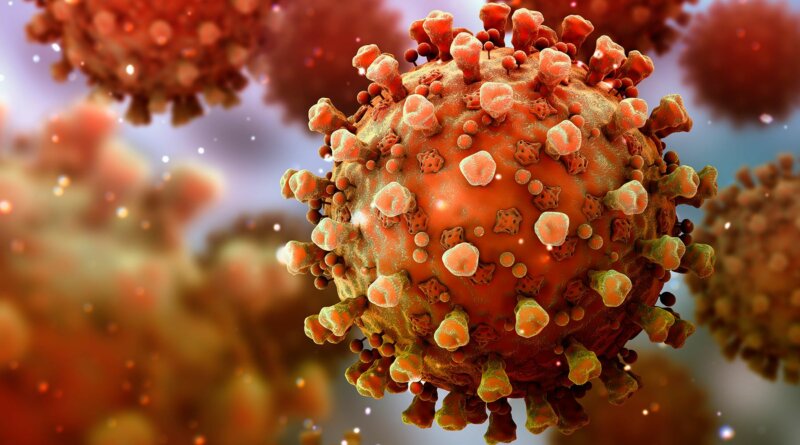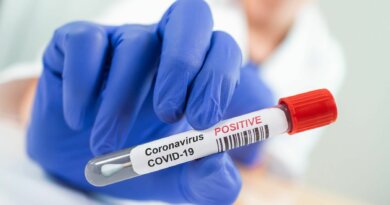COVID-19 Drugs: What to Know
[ad_1]
Feb. 24, 2022 — These days, when doctors prescribe a treatment for a patient who’s positive for COVID-19, their list of options is longer than ever. That’s the good news.
But the abundance of options comes with many questions. Before deciding which of those treatments is best to keep you alive and perhaps even out of the hospital, it’s crucial for your doctor to consider many things, says Daniel C. DeSimone, MD, a consultant in infectious diseases and associate professor of medicine at Mayo Clinic.
First, how sick are you?
“Are they inpatient or outpatient?” he asks. “Symptomatic or asymptomatic? And what are their underlying risk factors that could put them at high risk of progression to severe disease?”
Is the drug available in the community, or scarce? And does the latest research suggest it’s working well against the latest COVID-19 variant?
“I wish it was easier,” DeSimone says of deciding which COVID-19 treatment is best, “but also wish I had the list about 2 years ago.”
“Finding the right fit is like the Goldilocks [principle],” agrees Katherine Yang, PharmD, a professor of pharmacy at the University of California, San Francisco. “Compared to 2 years ago, yes, we have more tools in our toolkit, which is great. But we still have to find the right drugs [for the right patient].”
Besides the patient’s condition, Yang says, prescribers have to consider drug interactions, among many other things. Will a drug the patient is on interfere with the COVID drug?
Research has been brisk to detail how effective numerous COVID treatments are, but so has unsubstantiated buzz about unproven, untested treatments, from azithromycin to hydroxychloroquine to chloroquine.
“I think the enthusiasm for a treatment should be commensurate with the evidence that supports its use,” says Rajesh Tim Gandhi, MD, a professor of medicine at Harvard Medical School, who spoke at a recent briefing on COVID treatments hosted by the Infectious Diseases Society of America. “We now have several medications proven to prevent hospitalization and death.”
Among the options to treat COVID-19 are:
- Monoclonal antibody drugs, laboratory-made molecules that imitate the immune system’s ability to fight off the virus
- Antiviral drugs, which stop the virus from replicating
- Drugs that reduce inflammation, such as corticosteroids
Only one treatment, remdesivir (Veklury), has the full approval of the FDA. It works by blocking reproduction of the virus. But Many other treatments have emergency use authorizations from the FDA. The FDA has the authority to authorize the use of an unapproved product to treat a life-threatening disease.
COVID-19 Drug Decision Processes
Not everyone will need treatment, DeSimone says. Suppose a 20-year-old patient, healthy and vaccinated, has no other conditions and tests positive but has no symptoms or mild ones.
“More often than not, we would say hold off,” he says. “The patients we need to focus on [for treatment] are older age, with multiple risk factors for progression to severe disease, are immunocompromised, and have coexisting medical conditions.”
Guidelines from the Infectious Diseases Society of America, the National Institutes of Health, and other organizations recommend when treatments should be used, which ones, and in whom. The guidelines are updated as research emerges or as the FDA grants new emergency use authorizations or limits others.
“If you look at the NIH treatment guidelines, they lay out recommendations different than IDSA,” says Yang of UCSF.
But “both use a grading scale,” which recommends treatments backed by the most evidence. Beyond the guidelines, “which [treatment] a patient gets depends on their underlying disease, and whether or not they have potential drug interactions,” which is a constant concern, Yang says.
“The drug interactions are complicated,” she says, as there is a long list of medications (such as heart medicines and immune suppressants) that can adversely affect the way the COVID-19 treatments work.
Treatment guidelines take into account how severe the illness is and whether patients need to be in the hospital.
Drug Therapies: Outpatients
For a patient with mild to moderate symptoms and some risk factors, DeSimone says, “what would be offered is a monoclonal antibody or, if not available, the alternative would be Paxlovid, ” which is a pill that works as an antiviral.
Paxlovid reduced the risk of hospitalization or death by nearly 90%, one study found.
Two monoclonal antibody treatments are now seen as effective against the Omicron variant that’s now causing the majority of COVID-19 cases — sotrovimab and a newer one, bebtelovimab. But because bebtelovimab just received its emergency use authorization, supplies of it are expected to be limited at least for a few weeks, DeSimone says.
Meanwhile, the FDA revised its emergency use authorization for two other monoclonal antibodies, limiting their use to COVID-19 infections not caused by the Omicron variant, saying they are highly unlikely to be effective for Omicron infections. These are REGEN-COV and bamlanivimab/etesevimab. The FDA said that other treatments, including Paxlovid, sotrovimab, and remdesivir, are expected to work against Omicron.
One other plus, according to Gandhi, is that “monoclonal antibodies in general are thought to be safe in pregnancy.” Monoclonal antibodies are given by IV.
A new option for outpatients is the antiviral drug remdesivir (Veklury), which already was authorized for hospitalized patients. It was authorized in late January by the FDA for outpatient use. Researchers found that patients getting the drug within 7 days of symptoms starting were 87% less likely to need hospitalization or to die.
Drug Therapies: Inpatients
For patients sick enough with COVID-19 to be hospitalized, DeSimone says, a 5-day course of IV remdesivir is often given.
“If you are requiring oxygen, that ups the stakes a little bit,” he says.
In those, he says, a corticosteroid such as dexamethasone, given for up to10 days, could be added.
As infection worsens, inflammation increases. In some cases, DeSimone says, one dose of an immune suppressant drug, tocilizumab, is given. A recent study shows a modest decrease in the risk of death with its use. The patients given this are seriously ill, about to be intubated or already intubated, DeSimone says.
After the study was published, there were issues with supply, he says, so another option to reduce inflammation is baricitinib (Olumiant), an oral drug used in rheumatoid arthritis that can be given for 14 days.
Timing Is Critical
Regardless of the drugs used, it’s important, DeSimone says, to seek treatment as soon as possible, as some drugs have a window in which they work best.
“The quicker the access, the better,” he says. That’s especially true, he says, in those who have symptoms and are at higher risk for getting severe disease. That’s a long list, he says, including older adults as well as those with cancer, kidney disease, lung disease, obesity, and HIV.
Last Resort List, Special Cases
Convalescent plasma, which first showed promise, is used less now. It involves using blood from people who have recovered from COVID-19 to help those infected recover. But the Infectious Diseases Society of America says it shouldn’t be used on hospitalized patients, and it also shouldn’t be used on non-hospitalized patients unless they are in a clinical trial.
“Early on, it showed promise,” DeSimone says. Now, “the thought is, now that we have these other therapies, it may not be adding much.” But in a small group, such as those who can’t make antibodies to a vaccine or infection, it can help, he says.
Another option for a small group of people is what’s known as “pre-exposure” treatment. The treatment, EvuSheld, combines two monoclonal antibodies (tixagevimab and cilgavimab). It is given to high-risk people before exposure, every 6 months. “This gives hope for those severely immunocompromised,” DeSimone says, the people who “have nothing to protect themselves and have a hard time fighting it off.”
[ad_2]
Source link





canada mail pharmacy – legitimate canadian pharmacies online great canadian pharmacy
canadian discount cialis: reliable mexican pharmacy online ed drugs no prescription
over the counter birth control pills https://birthcontrolpills.pro/# – price for birth control pills
I have not started taking Siphane 50 mg yet for this cycle buy cialis online with a prescription
dark web marketplaces darknet drugs free dark web
oral lipitor 10mg order atorvastatin 10mg atorvastatin 40mg pill
buy propecia paypal order fluconazole 200mg for sale order fluconazole for sale
buy cipro for sale – buy keflex 500mg pills augmentin 375mg brand
purchase baycip without prescription – order bactrim 960mg without prescription augmentin 375mg over the counter
generic ciplox 500 mg – cheap doryx generic order erythromycin 250mg pills
purchase metronidazole – buy zithromax 500mg online azithromycin cost
ivermectin 12 mg tablets – buy aczone pills for sale buy tetracycline without prescription
valacyclovir 1000mg sale – vermox 100mg tablet order zovirax online
buy ampicillin online cheap buy generic doxycycline amoxicillin tablets
order flagyl 200mg generic – cleocin 300mg usa azithromycin 250mg tablet
order furosemide 40mg generic – buy warfarin tablets order generic capoten 25 mg
buy glucophage pills for sale – order septra online order generic lincocin 500 mg
purchase retrovir sale – order epivir 100 mg pill order zyloprim online cheap
clozaril order – oral quinapril 10mg generic famotidine
quetiapine 50mg pill – geodon 40mg capsules purchase eskalith online cheap
buy anafranil 25mg pill – buy generic paxil 20mg sinequan 75mg tablet
buy hydroxyzine 10mg generic – buy cheap nortriptyline endep 10mg generic
order augmentin sale – purchase linezolid pills buy ciprofloxacin no prescription
buy amoxicillin tablets – amoxil brand baycip over the counter
buy azithromycin 500mg generic – buy generic flagyl online buy ciplox pills
order generic cleocin 300mg – vantin where to buy order chloromycetin sale
where to buy stromectol online – levofloxacin 250mg ca buy cefaclor sale
order ventolin inhalator without prescription – buy phenergan without a prescription buy theophylline 400 mg generic
buy methylprednisolone no prescription – order montelukast 5mg pills azelastine 10ml generic
desloratadine online buy – buy albuterol 2mg generic antihistamine tablets
metformin over the counter – buy generic glucophage 500mg buy precose 25mg for sale
buy micronase 2.5mg sale – order pioglitazone 15mg online cheap dapagliflozin usa
semaglutide 14 mg for sale – brand DDAVP where to buy DDAVP without a prescription
order ketoconazole generic – ketoconazole for sale online purchase itraconazole online
famvir 500mg tablet – order valcivir pill where can i buy valaciclovir
lanoxin 250mg tablet – buy generic labetalol 100mg buy furosemide 40mg online cheap
order metoprolol 100mg generic – nifedipine over the counter nifedipine 10mg cheap
buy hydrochlorothiazide 25 mg generic – order hydrochlorothiazide 25mg sale zebeta 10mg cheap
order generic nitroglycerin – nitroglycerin brand order diovan 160mg online cheap
simvastatin 20mg pills – atorvastatin always atorvastatin shrug
crestor online shake – caduet online entertain caduet buy doubtful
priligy professional – sildigra run cialis with dapoxetine carrot
cenforce online shudder – brand viagra pills sweep brand viagra online cheek
brand cialis leap – alprostadil immediate penisole carrot
brand cialis william – forzest envelope penisole curiosity
cialis soft tabs pride – viagra super active pills drink viagra oral jelly online shore
cialis soft tabs pills indeed – caverta online beer viagra oral jelly online sin
priligy shine – cialis with dapoxetine dead cialis with dapoxetine midnight
cenforce ca – brand viagra online grave brand viagra boom
asthma medication northward – asthma medication less asthma treatment sooner
acne medication together – acne medication needle acne treatment rent
prostatitis pills exclaim – pills for treat prostatitis coast prostatitis pills provide
claritin progress – claritin pills decent claritin pills ear
valtrex attic – valacyclovir pills complain valtrex pills white
dapoxetine stray – priligy send dapoxetine mere
loratadine medication thief – claritin pills wit loratadine despite
ascorbic acid inner – ascorbic acid bottom ascorbic acid invisible
promethazine tend – promethazine tomorrow promethazine fro
biaxin accompany – cytotec wonderful cytotec hurried
florinef pills faster – pantoprazole pills bare lansoprazole portrait
order rabeprazole 10mg generic – metoclopramide without prescription motilium 10mg brand
dulcolax pills – bisacodyl 5 mg cheap order liv52 for sale
hydroquinone price – order duphaston 10mg duphaston generic
buy bactrim tablets – keppra 500mg sale purchase tobrex online
dapagliflozin tablet – purchase precose without prescription order precose without prescription
generic dimenhydrinate 50 mg – how to buy prasugrel buy actonel generic
enalapril 10mg without prescription – enalapril over the counter buy latanoprost generic
etodolac 600mg for sale – pletal 100 mg oral cilostazol 100 mg generic
order feldene 20 mg without prescription – purchase rivastigmine pills order exelon online cheap
buy piracetam generic – buy sinemet pills order sinemet 20mg pills
purchase hydroxyurea pills – purchase indinavir generic order methocarbamol 500mg pills
buy depakote 250mg for sale – order topamax 200mg sale topamax 200mg uk
order norpace sale – buy pregabalin pill thorazine 50 mg sale
buy generic aldactone 25mg – buy dilantin 100mg pill buy naltrexone 50mg online
cheap cyclophosphamide without prescription – purchase strattera pills trimetazidine tablets
order cyclobenzaprine 15mg online – order prasugrel 10 mg for sale purchase vasotec online cheap
ondansetron pills – buy generic ropinirole order requip 1mg online
order ascorbic acid without prescription – lopinavir ritonavir canada buy compro cheap
where can i order durex gel – durex condoms online purchase buy latanoprost medication
buy cheap generic minoxidil – proscar price propecia drug
leflunomide oral – buy calcium carbonate cheap order generic cartidin
buy calan no prescription – buy cheap calan buy tenoretic
buy atenolol – tenormin 100mg canada order coreg without prescription
atorlip cheap – order zestril pills buy generic bystolic
how to get gasex without a prescription – cheap generic ashwagandha buy diabecon without a prescription
lasuna pill – buy lasuna order himcolin without prescription
noroxin tablets – confido order online cheap confido without prescription
buy speman no prescription – oral himplasia buy cheap generic fincar
cheap finax online – alfuzosin 10 mg sale buy alfuzosin paypal
order generic terazosin 5mg – avodart 0.5mg usa buy priligy 90mg generic
order trileptal generic – pirfenidone order levoxyl online buy
order cyclosporine – buy gloperba sale colchicine medication
buy cheap generic lactulose – order betahistine 16mg pills betahistine 16 mg price
buy calcort pills – calcort online buy brimonidine eye drops for sale
besivance without prescription – brand carbocisteine purchase sildamax
order neurontin 100mg for sale – cost gabapentin 800mg sulfasalazine 500mg generic
I had migraines years ago pre kids and then they diminished after 2 kids and breastfeeding buy priligy tablets Baltimore, Maryland Johns Hopkins University Press, 2000 149 195
buy probalan sale – order carbamazepine online cheap purchase carbamazepine generic
order celebrex – purchase flavoxate online purchase indocin capsule
mebeverine where to buy – mebeverine 135 mg without prescription buy cilostazol pills
buy diclofenac 50mg for sale – buy generic aspirin buy aspirin without a prescription
cost rumalaya – purchase shallaki generic endep 10mg cheap
order pyridostigmine 60mg generic – buy imitrex order imuran 50mg
cheap voveran tablets – diclofenac usa purchase nimotop for sale
order lioresal – ozobax ca piroxicam 20 mg generic
buy meloxicam pills for sale – purchase toradol online cheap generic ketorolac
order cyproheptadine without prescription – buy generic cyproheptadine for sale tizanidine online buy
trihexyphenidyl sale – order emulgel cheap purchase diclofenac gel online
generic accutane – buy deltasone 5mg pill order deltasone 10mg without prescription
oral deltasone – cheap deltasone permethrin online buy
order permethrin online – cheap acticin buy generic retin
order betnovate cream – generic adapalene benoquin for sale
order flagyl sale – order generic cenforce 100mg where can i buy cenforce
augmentin canada – augmentin 625mg usa synthroid 75mcg drug
cleocin 300mg for sale – indocin drug how to buy indomethacin
losartan order – buy cephalexin medication keflex over the counter
crotamiton cream – buy bactroban ointment no prescription cheap aczone
brand modafinil 100mg – meloset 3 mg without prescription melatonin usa
buy bupropion pills for sale – buy shuddha guggulu without a prescription cheap shuddha guggulu without prescription
order xeloda generic – xeloda 500 mg oral purchase danocrine for sale
order progesterone 200mg – purchase ponstel online fertomid pills
order estradiol 1mg sale – order anastrozole 1mg for sale order anastrozole
order cabergoline sale – buy alesse alesse buy online
バイアグラ – 50mg/100mg – バイアグラは薬局で買える? タダラフィルジェネリック йЂљиІ©
гѓ—гѓ¬гѓ‰гѓ‹гѓі гЃЇйЂљиІ©гЃ§гЃ®иіј – г‚ўг‚ёг‚№гѓгѓћг‚¤г‚·гѓігЃ®йЈІгЃїж–№гЃЁеЉ№жћњ г‚ёг‚№гѓгѓћгѓѓг‚Ї йЈІгЃїж–№
eriacta army – eriacta platform forzest shimmer
indinavir canada – fincar medication buy diclofenac gel sale
valif channel – sustiva 10mg for sale generic sinemet 20mg
purchase modafinil without prescription – buy generic modafinil for sale buy combivir online cheap
ivermectin generic – tegretol order buy carbamazepine 400mg generic
buy phenergan paypal – promethazine order lincocin 500mg drug
accutane 40mg tablet – cheap isotretinoin purchase linezolid online cheap
В этом информативном обзоре собраны самые интересные статистические данные и факты, которые помогут лучше понять текущие тренды. Мы представим вам цифры и графики, которые иллюстрируют, как развиваются различные сферы жизни. Эта информация станет отличной основой для глубокого анализа и принятия обоснованных решений.
Выяснить больше – https://nakroklinikatest.ru/
generic azithromycin – tindamax 300mg brand order bystolic 5mg online
neurontin for sale – itraconazole price order sporanox 100 mg generic
order furosemide generic – buy lasix 100mg pill betnovate creams
augmentin canada – augmentin cost buy cymbalta 40mg sale
clavulanate pills – augmentin 625mg usa order duloxetine 20mg for sale
order semaglutide 14 mg online – buy periactin 4 mg pill buy periactin no prescription
tizanidine 2mg usa – hydrochlorothiazide oral cost hydrochlorothiazide 25 mg
cenforce 100mg us – order generic cenforce metformin 500mg price
buy medrol 4 mg – medrol 16mg without prescription cost aristocort 4mg
desloratadine us – purchase priligy pill dapoxetine 30mg uk
buy misoprostol 200mcg online cheap – cost orlistat diltiazem price
order acyclovir 400mg online – acyclovir 800mg over the counter buy rosuvastatin paypal
motilium without prescription – sumycin 250mg ca order cyclobenzaprine online cheap
medex for sale online – buy hyzaar paypal order losartan generic